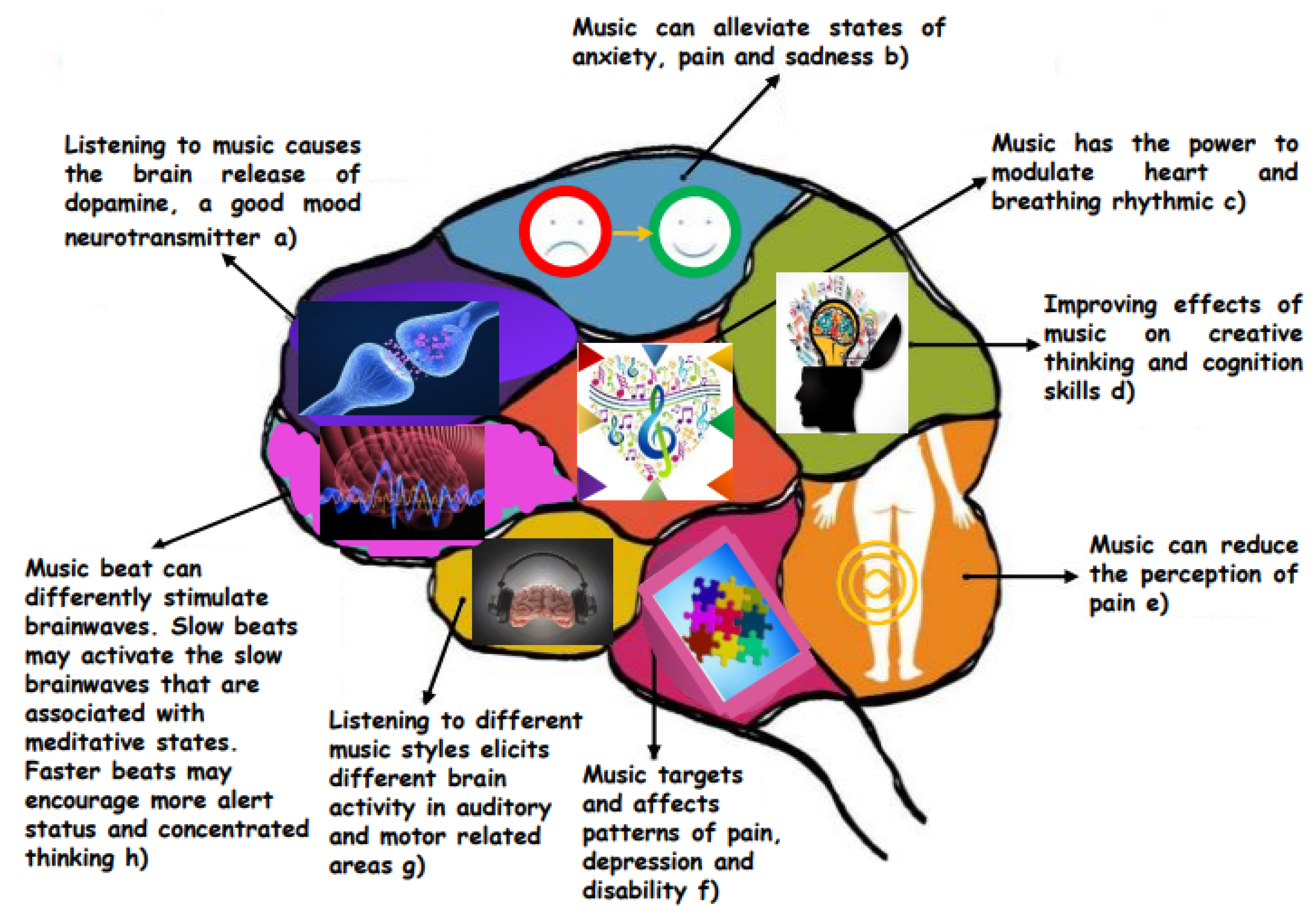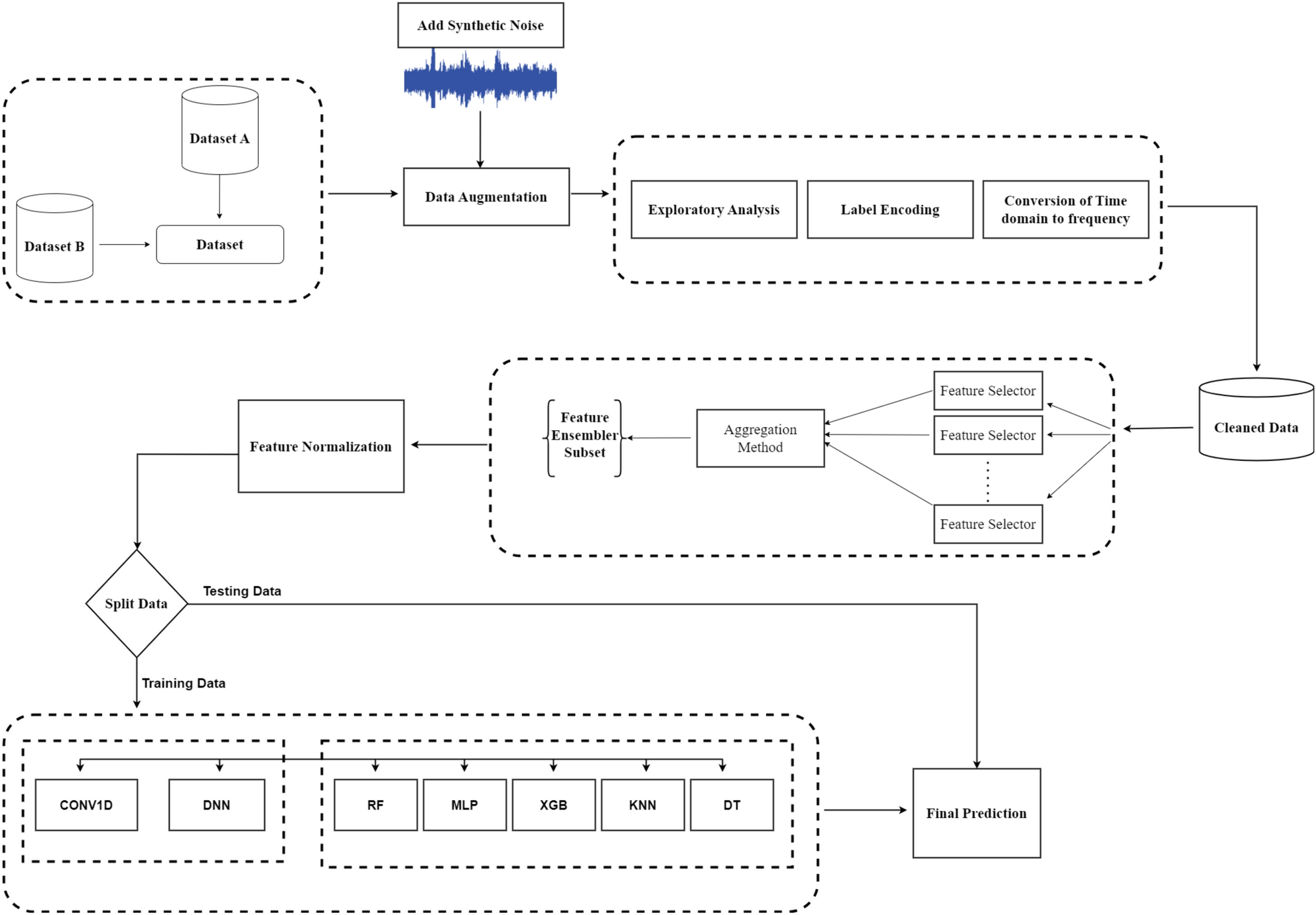Can sound waves boost your brainpower? Many believe certain audio frequencies can enhance intelligence.
In the quest for better cognitive function, exploring sound is a fascinating avenue. Recent studies suggest that specific frequencies might stimulate brain activity. This could lead to improved focus, memory, and overall intelligence. Imagine using sound as a tool for mental growth.
It’s not magic; it’s science. The concept is simple yet intriguing. Sound waves interact with the brain in unique ways. They might even unlock hidden potential within us. As we delve into this topic, we’ll uncover how these frequencies work. We’ll explore the science behind their effects on the mind. This journey might lead you to new ways of enhancing your cognitive abilities. Stay tuned to learn more.
Introduction To Sound And Mind
Sound is not just a sensory experience; it’s a profound force that can shape how you think, feel, and act. Have you ever noticed how certain tunes make you feel more alert or relaxed? This isn’t just a coincidence. Scientists have found that audio frequencies can actually enhance your cognitive abilities. Let’s dive into how sound can influence your mind and potentially boost your intelligence.
The Power Of Audio
Audio is more than just noise; it’s a tool that can transform your mental state. Think about the last time you listened to a powerful song. Did it stir your emotions or change your mood? Audio frequencies work similarly, resonating with your brainwaves to create specific cognitive effects.
Consider binaural beats, a type of audio designed to influence your brain activity. When you listen to them, they can foster a heightened state of awareness or relaxation. Imagine using sound to sharpen your focus or reduce stress. These audio tools aren’t just theoretical; they’re practical aids that you can use daily.
Link Between Sound And Intelligence
Sound’s impact on intelligence is not just a theory; it’s backed by research. Studies have shown that certain frequencies can enhance memory, concentration, and even problem-solving skills. Picture yourself tackling a challenging task with greater ease, all because you chose the right audio frequency.
Why does sound affect intelligence? It’s all about how these frequencies interact with brainwaves. Your mind is a complex network of electrical signals. When certain sounds align with these signals, they can amplify your brain’s efficiency. Wouldn’t you want to harness this potential for your personal growth?
So, next time you’re trying to boost your brainpower, consider the sounds around you. Whether it’s music, ambient noise, or specialized frequencies, your auditory environment can be a powerful ally in your quest for greater intelligence. How will you use sound to enhance your mind today?
The Science Of Brain Waves
Have you ever wondered how the rhythms of your brain could enhance your intelligence? The science of brain waves offers intriguing insights into this. Brain waves are not just abstract concepts; they are measurable frequencies that reflect your brain’s activity. Understanding these waves can help you tap into your mind’s potential and perhaps boost your cognitive abilities.
Types Of Brain Waves
Your brain operates on five main types of waves: delta, theta, alpha, beta, and gamma. Each type serves a unique purpose and frequency range. Delta waves, the slowest, are linked to deep sleep and healing. Theta waves foster creativity and intuition, ideal for relaxation and meditation. Alpha waves bridge your conscious and subconscious mind, boosting calm and learning. Beta waves keep you alert and focused during active mental tasks. Gamma waves, the fastest, are thought to be linked to higher-level information processing.
Imagine you could harness these waves to improve your study habits or creative thinking. Wouldn’t that be transformative? Understanding these frequencies can be your first step in optimizing your mental performance.
How Brain Waves Affect Cognition
Brain waves directly impact how you think, learn, and remember. Alpha waves, for instance, help you relax, making it easier to absorb new information. Beta waves boost concentration, sharpening your focus during intense mental activities. Gamma waves enhance your ability to process complex ideas, potentially improving problem-solving skills.
Have you ever felt stuck while solving a puzzle, only to find the solution after a good night’s sleep? That’s your brain leveraging different wave states to enhance cognition. You can apply this knowledge in daily life by engaging in activities that stimulate specific brain waves, such as meditation for theta waves or reading for beta waves.
Why not try tuning into these frequencies to see how they affect your mental clarity? Could you discover new ways to boost your intelligence by simply being mindful of your brain’s rhythms?
Frequency Basics
Understanding audio frequencies can enhance intelligence in fascinating ways. Frequencies are vibrations that travel through the air. They can influence the mind and body. From boosting memory to improving focus, specific frequencies have unique benefits. To grasp these effects, it’s crucial to explore the basics of frequency.
Understanding Hertz
Hertz is the unit of frequency measurement. It indicates the number of sound vibrations per second. Every sound has a frequency, measured in Hertz. Low frequencies range from 20 to 250 Hertz. High frequencies can reach up to 20,000 Hertz. These vibrations can alter brain waves, impacting thought processes.
Role Of Frequencies In Daily Life
Frequencies play a vital role in everyday life. Music affects mood and concentration. Background noise can reduce stress or enhance productivity. Even nature sounds, like rain, have calming effects. Many people use frequency-based audio for meditation. This helps improve mental clarity. Understanding these frequencies can lead to smarter choices in audio experiences.
Alpha Waves And Relaxation
Alpha waves can boost relaxation and brain function. Listening to specific audio frequencies may enhance intelligence. These frequencies help calm the mind and improve focus.
Alpha waves hold the key to unlocking a state of relaxation and mental clarity. These brainwaves, typically in the frequency range of 8-12 Hz, occur when you’re awake but relaxed, often during quiet moments of reflection or light meditation. By tapping into alpha waves, you can enhance your mental performance and creativity while reducing stress. ###Benefits Of Alpha Waves
Alpha waves can significantly boost your mental well-being. When your brain produces more alpha waves, you experience a sense of calm and improved concentration. This relaxed state can lead to better learning and problem-solving abilities. Stress reduction is another major benefit. As your brain shifts into alpha mode, cortisol levels drop, allowing you to manage anxiety more effectively. This can lead to improved emotional stability and overall health. ###Techniques To Stimulate Alpha Waves
You don’t need complex tools to stimulate alpha waves. Meditation is a highly effective technique. Even a few minutes a day can help your brain transition into an alpha state. Deep breathing exercises can also work wonders. By focusing on your breath, you encourage your mind to relax and enter the alpha zone. Try inhaling deeply for a count of four, holding for four, and exhaling for four. Listening to music designed to enhance alpha waves is another practical approach. Look for tracks labeled with “alpha wave music” or “binaural beats.” These sounds can guide your brain into producing more alpha waves. Have you noticed how music changes your mood? This is one reason why. Remember, consistency is key. Which technique will you try first to harness the power of alpha waves?Beta Waves For Focus
Beta waves enhance focus and mental clarity. These audio frequencies help improve intelligence by stimulating brain activity. Listening to beta wave music can sharpen concentration and boost cognitive function effectively.
Beta waves play a vital role in mental focus. These high-frequency brain waves enhance alertness and concentration. They help to filter out distractions. People often experience beta waves during problem-solving tasks. Listening to beta wave audio might boost attention and cognitive skills.Enhancing Concentration
Beta waves improve concentration levels. They help in maintaining focus on tasks. These waves reduce mind wandering and distraction. Beta waves keep the brain active and engaged. Listening to beta wave audio can sharpen mental clarity. People might feel more focused and attentive.Activities To Boost Beta Waves
Certain activities can enhance beta wave production. Solving puzzles stimulates brain activity. Reading is another way to activate beta waves. Meditation focused on alertness can help. Engaging in deep discussions also boosts beta waves. Listening to upbeat music might increase beta waves. These activities can improve mental focus and alertness.
Credit: www.mdpi.com
Gamma Waves And Iq
Gamma waves are audio frequencies believed to enhance cognitive abilities. Listening to these frequencies may improve focus and intelligence. Studies suggest that gamma waves can positively impact brain function and IQ levels.
Gamma Waves and IQ Gamma waves are high-frequency brain waves linked to higher cognitive functions. Researchers have found that when gamma wave activity increases, so does intelligence. You might be wondering how these waves can actually boost your IQ. Let’s dive into it!Connection To Intelligence
Gamma waves are associated with peak mental performance. These waves are active when you’re intensely focused or solving complex problems. Imagine you’re deep into a challenging puzzle, and suddenly everything clicks. That moment of clarity is often fueled by gamma waves. Studies show that people with more gamma wave activity tend to have better memory, attention, and problem-solving skills. It’s like your brain gets a turbo boost!Methods To Increase Gamma Wave Activity
Meditation is a powerful way to enhance gamma wave activity. Regular practice can train your brain to produce more gamma waves, leading to improved cognitive abilities. Try listening to binaural beats designed to stimulate gamma wave production. Many users report feeling sharper and more focused after listening. Physical exercise also contributes to gamma wave activity. A simple daily walk can boost your brain’s performance. Curious about trying new techniques? How do you plan to integrate these methods into your routine?Using Binaural Beats
Using binaural beats can enhance cognitive abilities. This method involves listening to sounds that can positively affect brain functions. The use of specific audio frequencies is believed to boost mental performance and intelligence. Discover the science and benefits of binaural beats for improving mental prowess.
What Are Binaural Beats?
Binaural beats are audio signals that trick the brain. Two different frequencies are played in each ear. The brain perceives a third tone. This effect can alter brainwave patterns. It promotes relaxation, focus, and mental clarity.
Their Impact On Mental Performance
Binaural beats can sharpen concentration. They improve memory retention. Listening to these beats may also reduce stress. They create an ideal mental state for learning. Many people report increased creativity and problem-solving skills. Regular use can lead to better cognitive function.

Credit: www.mdpi.com
Practical Application
Integrating proven audio frequencies into your daily life can be a game-changer for boosting your intelligence. Imagine effortlessly improving focus and memory by simply listening to certain sounds. This isn’t just a theory—it’s a practical tool you can use every day. Whether you’re studying, working, or relaxing, using audio frequencies can enhance your mental performance.
Daily Routine Integration
Start by identifying moments in your day where you can add frequency therapy. Morning meditation or evening relaxation sessions are perfect. You don’t need to overhaul your schedule—just slip in a few minutes to listen to these frequencies. Find a quiet corner, put on your headphones, and let the sounds work their magic.
Consider this: how often do you reach for your phone or laptop? Use those moments to play intelligence-boosting frequencies. Whether you’re making breakfast or winding down after a long day, these sounds can seamlessly fit into your routine. How might your productivity shift if you made this a habit?
Tools And Resources For Frequency Therapy
You don’t need fancy equipment to get started. A simple pair of headphones and a reliable audio source is all it takes. There are countless apps and online platforms offering curated playlists designed for cognitive enhancement. Dive into YouTube channels dedicated to brainwave frequencies. They often explain the benefits of each sound, allowing you to choose what resonates with your needs.
Many people swear by binaural beats for enhancing focus. These beats are easily accessible and often free. Look for community reviews to find the most effective options. Have you tried any apps that offer personalized frequency recommendations? It’s worth exploring to see what suits your lifestyle.
Practical application is key to making the most of audio frequencies. It’s about simple steps that can lead to significant improvements. How will you integrate these sounds into your daily life to boost your intelligence?
Case Studies And Research
Exploring the impact of audio frequencies on intelligence is fascinating. Many studies and experiments highlight promising results. Researchers delve into how specific sounds influence cognitive abilities. Understanding these findings can help improve mental skills and focus.
Success Stories
Numerous individuals have shared their positive experiences with audio frequencies. For example, students using specific sound waves reported better concentration. Professionals noted enhanced problem-solving abilities after listening to certain frequencies. These personal stories provide valuable insights into the potential benefits.
One notable case involved a musician using binaural beats. He experienced improved creativity and productivity. His work quality increased significantly. Such success stories inspire others to explore this approach.
Current Scientific Findings
Research on audio frequencies and intelligence is expanding. Recent studies show promising results. Scientists discovered that certain frequencies can boost brain function. They found that theta waves enhance memory and learning. Alpha waves, on the other hand, aid relaxation and focus.
Another study examined the effects of gamma frequencies. It showed potential in enhancing cognitive processing. Researchers continue to investigate these areas. Ongoing studies aim to uncover more about audio frequency impacts. These findings pave the way for further exploration.
Potential Limitations
Exploring proven audio frequencies may have potential limitations. Individual results can vary due to personal differences. Scientific research on this topic is still emerging, so outcomes aren’t guaranteed for everyone.
Potential Limitations of using audio frequencies to enhance intelligence are worth exploring. While there is excitement around these methods, some limitations exist. These can affect their effectiveness for different individuals.Understanding Individual Differences
Not everyone experiences the same results with audio frequencies. Each person’s brain responds uniquely to external stimuli. What works for one person might not work for another. Genetics play a role in how our brains process sound. Personal experiences also impact this. Some might need specific frequencies to notice change. Others might not see any improvement. Understanding these differences is crucial. It helps set realistic expectations.Cautions And Considerations
Using audio frequencies requires caution. The wrong frequency can cause discomfort. It can even lead to headaches or stress. Listening at high volumes is not advisable. It can damage hearing over time. Sessions should be limited. Prolonged exposure might reduce effectiveness. It’s wise to consult a specialist. They can guide on appropriate frequencies. Be aware of your body’s reactions. Stop if you feel uneasy. Consider the environment. Noise levels can interfere with results. Ensure a quiet space for listening sessions.
Credit: www.nature.com
Frequently Asked Questions
Which Frequency Is Best For Increasing Iq?
No specific frequency has been scientifically proven to increase IQ. Brainwave entrainment methods, like binaural beats, are popular. Alpha (8-12 Hz) and gamma (30-100 Hz) frequencies are often associated with cognitive enhancement. Always consult experts before trying new methods for cognitive improvement.
What Sound Frequency Makes You Smarter?
Certain studies suggest that listening to binaural beats at 40 Hz may enhance cognitive functions. This frequency might improve focus, memory, and brainwave synchronization. Always consult scientific research for accuracy before relying on sound frequencies for cognitive enhancement. Individual experiences with sound frequencies can vary greatly.
What Music Makes You Smarter Scientifically Proven?
Classical music, especially Mozart’s compositions, is scientifically proven to enhance cognitive abilities. Known as the “Mozart Effect,” this phenomenon can improve spatial-temporal reasoning skills. Listening to soothing classical music may boost memory, focus, and overall brain function, making it a popular choice for enhancing mental performance and learning capabilities.
Which Brain Waves Are Best For Intelligence?
Beta waves are best for intelligence. They are associated with active thinking and problem-solving. These waves enhance focus, logical reasoning, and decision-making. Maintaining balanced beta wave activity can boost cognitive performance and intelligence.
Conclusion
Exploring audio frequencies can enhance intelligence. These frequencies stimulate brain activity effectively. Consistent listening might improve focus and problem-solving skills. Many find these sounds calming and beneficial for learning. Experiment with different frequencies to see what works best. Results vary from person to person.
Some find immediate benefits, others need more time. Try incorporating these frequencies into daily routines. Listen while studying or relaxing. Be patient and observe any changes in your mental clarity. Understanding how sound affects the brain can lead to smarter, healthier choices.
Stay curious and keep exploring.

